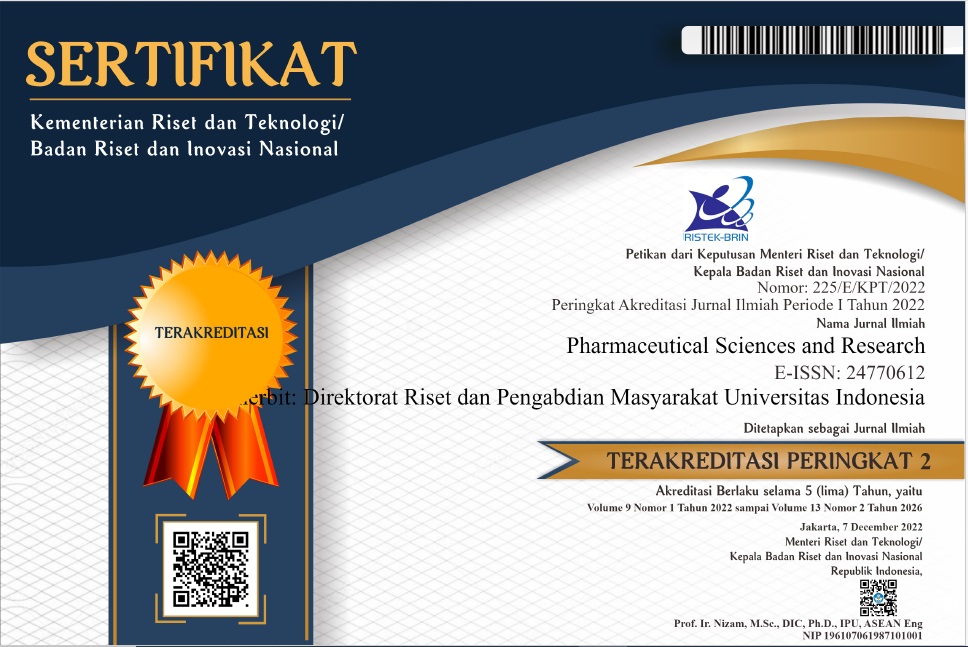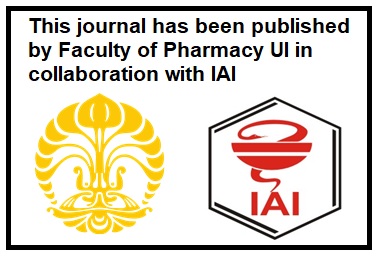Abstract
Non-alcoholic steatohepatitis (NASH), an inflammatory disease of the liver, has recently raised concern among healthcare professionals worldwide due to its asymptomatic features, making early diagnosis challenging. If left unnoticed, NASH often progresses to lethal diseases such as liver fibrosis or hepatocellular carcinoma. Recent developments in the field of artificial intelligence (AI) might facilitate the early diagnosis of NASH in a more efficient manner, forming a promising strategy to diagnose patients. In simple terms, AI is any machine that is capable of human-level intelligence, including visual perception, speech recognition, or decision making. A subclass of AI, which particularly deals with knowledge-based systems to find a relationship between different datasets, is called machine learning (ML). ML is based on the capability of a system to define or learn a relationship between the input and output data and then apply the learned relationship to any future datasets with a similar structure. The capability to maintain and analyze large datasets and aid in the prediction of outcomes makes ML particularly interesting for the application in NASH by, for instance, analyzing image data from patients, using biomarkers to predict clinical disease progression or by determining the efficacy of applied therapeutics. In this review, we will highlight the recent developments in the AI-based diagnosis and treatment of liver diseases. First, we provide a brief introduction to AI and ML before generalizing the use of AI in the diagnosis and treatment of different liver diseases. Then, we will specifically elaborate on the use of AI in the detection of NASH and its precursor, non-alcoholic fatty liver disease (NAFLD), focusing on the prediction and diagnosis of NASH and NAFLD as well as on the automation of imaging processes. Finally, we will highlight the clinical importance of AI in the detection of NASH before concluding with the future challenges for the application of AI in the field of NASH detection and treatment.
References
Abajian, A., Murali, N., Savic, L. J., Laage-Gaupp, F. M., Nezami, N., Duncan, J. S., Schlachter, T., Lin, M. De, Geschwind, J. F., & Chapiro, J. (2018). Predicting treatment response to intra-arterial therapies for hepatocellular carcinoma with the use of supervised machine learning—an artificial intelligence concept. Journal of Vascular and Interventional Radiology, 29(6), 850-857.e1. https://doi.org/10.1016/j.jvir.2018.01.769
Aggarwal, P., & Alkhouri, N. (2021). Artificial intelligence in nonalcoholic fatty liver disease: A new frontier in diagnosis and treatment. Clinical Liver Disease, 17(6), 392–397. https://doi.org/10.1002/cld.1071
Ahmed, S. B., Solis-Oba, R., & Ilie, L. (2022). Explainable-AI in automated medical report generation using chest X-ray images. Applied Sciences, 12(22). https://doi.org/10.3390/app122211750
Ahn, J. C., Connell, A., Simonetto, D. A., Hughes, C., & Shah, V. H. (2021). Application of artificial intelligence for the diagnosis and treatment of liver diseases. Hepatology, 73(6), 2546–2563. https://doi.org/10.1002/hep.31603
Ajmera, V., & Loomba, R. (2021). Imaging biomarkers of NAFLD, NASH, and fibrosis. Molecular Metabolism, 50(January), 1–7. https://doi.org/10.1016/j.molmet.2021.101167
Akkus, Z., Cai, J., Boonrod, A., Zeinoddini, A., Weston, A. D., Philbrick, K. A., & Erickson, B. J. (2019). A survey of deep-learning applications in ultrasound: Artificial intelligence–powered ultrasound for improving clinical workflow. Journal of the American College of Radiology, 16(9), 1318–1328. https://doi.org/10.1016/j.jacr.2019.06.004.
Arrese, M., & Feldstein, A. E. (2017). Nash-related cirrhosis: An occult liver disease burden. Hepatol Commun, 1(2), 84-86. https://doi.org/10.1002/hep4.1033
Bhattamisra, S. K., Banerjee, P., Gupta, P., Mayuren, J., Patra, S., & Candasamy, M. (2023). Artificial intelligence in pharmaceutical and healthcare research. Big Data and Cognitive Computing, 7(1). https://doi.org/10.3390/bdcc7010010
Briceño, J., Cruz-Ramírez, M., Prieto, M., Navasa, M., De Urbina, J. O., Orti, R., Gómez-Bravo, M. Á., Otero, A., Varo, E., Tomé, S., Clemente, G., Bañares, R., Bárcena, R., Cuervas-Mons, V., Solórzano, G., Vinaixa, C., Rubín, Á., Colmenero, J., Valdivieso, A., … De La Mata, M. (2014). Use of artificial intelligence as an innovative donor-recipient matching model for liver transplantation: Results from a multicenter Spanish study. Journal of Hepatology, 61(5), 1020–1028. https://doi.org/10.1016/j.jhep.2014.05.039
Brunette, E. S., Flemmer, R. C., & Flemmer, C. L. (2009). A review of artificial intelligence. ICARA 2009 - Proceedings of the 4th International Conference on Autonomous Robots and Agents, January 2009, 385–392. https://doi.org/10.1109/ICARA.2000.4804025
Brunt, E. M., Wong, V. W., Nobili, V., Day, C. P., Sookoian, S., Maher, J. J., Bugianesi, E., Sirlin, C. B., Neuschwander-Tetri, B. A., & Rinella, M. E. (2015). Nonalcoholic fatty liver disease. Nature Reviews Disease Primers, 1, 15080. https://doi.org/10.1038/nrdp.2015.80
Buzzetti, E., Pinzani, M., & Tsochatzis, E. A. (2016). The multiple-hit pathogenesis of non-alcoholic fatty liver disease (NAFLD). Metabolism, 65(8), 1038-1048. https://doi.org/10.1016/j.metabol.2015.12.012
Caligiuri, A., Gentilini, A., & Marra, F. (2016). Molecular Pathogenesis of NASH. International Journal of Molecular Sciences, 17(9). https://doi.org/10.3390/ijms17091575
Canbay, A., Sowa, J. P., Syn, W. K., & Treckmann, J. (2016). NASH cirrhosis - the new burden in liver transplantation: How should it be managed? Visceral Medicine, 32(4), 234-238. https://doi.org/10.1159/000446379
Decharatanachart, P., Chaiteerakij, R., Tiyarattanachai, T., & Treeprasertsuk, S. (2021a). Application of artificial intelligence in chronic liver diseases: a systematic review and meta-analysis. BMC Gastroenterology, 21(1), 1–16. https://doi.org/10.1186/s12876-020-01585-5
Decharatanachart, P., Chaiteerakij, R., Tiyarattanachai, T., & Treeprasertsuk, S. (2021b). Application of artificial intelligence in non-alcoholic fatty liver disease and liver fibrosis: a systematic review and meta-analysis. Therapeutic Advances in Gastroenterology, 14, 17562848211062807. https://doi.org/10.1177/17562848211062807
Dowman, J. K., Tomlinson, J. W., & Newsome, P. N. (2010). Pathogenesis of non-alcoholic fatty liver disease. QJM, 103(2), 71-83. https://doi.org/10.1093/qjmed/hcp158
Ellahham, S., & Ellahham, N. (2019). Use of artificial intelligence for improving patient flow and healthcare delivery. Article in Journal of Computer Science & Systems Biology, 12(3), 1–6. https://www.researchgate.net/publication/336742991
Fang, Y. L., Chen, H., Wang, C. L., & Liang, L. (2018). Pathogenesis of non-alcoholic fatty liver disease in children and adolescence: From “two hit theory” to “multiple hit model”. World Journal of Gastroenterology, 24(27), 2974-2983. https://doi.org/10.3748/wjg.v24.i27.2974
Fazel, Y., Koenig, A. B., Sayiner, M., Goodman, Z. D., & Younossi, Z. M. (2016). Epidemiology and natural history of non-alcoholic fatty liver disease. Metabolism, 65(8), 1017-1025. https://doi.org/10.1016/j.metabol.2016.01.012
Forlano, R., Mullish, B. H., Giannakeas, N., Maurice, J. B., Angkathunyakul, N., Lloyd, J., Tzallas, A. T., Tsipouras, M., Yee, M., Thursz, M. R., Goldin, R. D., & Manousou, P. (2020). High-throughput, machine learning–based quantification of steatosis, inflammation, ballooning, and fibrosis in biopsies from patients with nonalcoholic fatty liver disease. Clinical Gastroenterology and Hepatology, 18(9), 2081-2090.e9. https://doi.org/10.1016/j.cgh.2019.12.025
Gawrieh, S., Sethunath, D., Cummings, O. W., Kleiner, D. E., Vuppalanchi, R., Chalasani, N., & Tuceryan, M. (2020). Automated quantification and architectural pattern detection of hepatic fibrosis in NAFLD. Annals of Diagnostic Pathology, 47, 151518. https://doi.org/10.1016/j.anndiagpath.2020.151518
Heinemann, F., Birk, G., & Stierstorfer, B. (2019). Deep learning enables pathologist- like scoring of NASH models. Scientific Reports, 9, 1–10. https://doi.org/10.1038/s41598-019-54904-6
Houlton, S. (2018). How artificial intelligence is transforming healthcare. Prescriber, 29(10), 13–17. https://doi.org/10.1002/psb.1708
Ibragimov, B., Toesca, D., Chang, D., Yuan, Y., Koong, A., & Xing, L. (2018). Development of deep neural network for individualized hepatobiliary toxicity prediction after liver SBRT. Medical Physics, 45(10), 4763–4774. https://doi.org/10.1002/mp.13122
Katsiki, N., Mikhailidis, D. P., & Mantzoros, C. S. (2016). Non-alcoholic fatty liver disease and dyslipidemia: An update. Metabolism, 65(8), 1109-1123. https://doi.org/10.1016/j.metabol.2016.05.003
Kayvanjoo, A. H., Ebrahimi, M., & Haqshenas, G. (2014). Prediction of hepatitis C virus interferon / ribavirin therapy outcome based on viral nucleotide attributes using machine learning algorithms. Biomed Central, 7(565), 1–11.
Kim, J. W., Lee, Y. S., Park, Y. S., Kim, B. H., Lee, S. Y., Yeon, J. E., & Lee, C. H. (2020). Multiparametric MR index for the diagnosis of non-alcoholic steatohepatitis in patients with non-alcoholic fatty liver disease. Scientific Reports, 10(1), 1–9. https://doi.org/10.1038/s41598-020-59601-3
Lazo, M., Hernaez, R., Eberhardt, M. S., Bonekamp, S., Kamel, I., Guallar, E., Koteish, A., Brancati, F. L., & Clark, J. M. (2013). Prevalence of nonalcoholic fatty liver disease in the United States: the Third National Health and Nutrition Examination Survey, 1988-1994. American Journal of Epidemiology, 178(1), 38-45. https://doi.org/10.1093/aje/kws448
Le Berre, C., Sandborn, W. J., Aridhi, S., Devignes, M. D., Fournier, L., Smaïl-Tabbone, M., Danese, S., & Peyrin-Biroulet, L. (2020). Application of artificial intelligence to gastroenterology and hepatology. Gastroenterology, 158(1), 76-94.e2. https://doi.org/10.1053/j.gastro.2019.08.058
Lee, H. W., Sung, J. J. Y., & Ahn, S. H. (2021). Artificial intelligence in liver disease. Journal of Gastroenterology and Hepatology (Australia), 36(3), 539–542. https://doi.org/10.1111/jgh.15409
Li, B., Zhang, C., & Zhan, Y.-T. (2018). Nonalcoholic fatty liver disease cirrhosis: A review of its epidemiology, risk factors, clinical presentation, diagnosis, management, and prognosis. Canadian Journal of Gastroenterology and Hepatology, 2018, 1-8. https://doi.org/10.1155/2018/2784537
Liu, W., Baker, R. D., Bhatia, T., Zhu, L., & Baker, S. S. (2016). Pathogenesis of nonalcoholic steatohepatitis. Cellular and Molecular Life Sciences, 73(10), 1969-1987. https://doi.org/10.1007/s00018-016-2161-x
Machado, M. V., & Diehl, A. M. (2016). Pathogenesis of nonalcoholic steatohepatitis. Gastroenterology, 150(8), 1769-1777. https://doi.org/10.1053/j.gastro.2016.02.066
Magee, N., Zou, A., & Zhang, Y. (2016). Pathogenesis of nonalcoholic steatohepatitis: Interactions between liver parenchymal and nonparenchymal cells. BioMed Research International, 2016, 5170402. https://doi.org/10.1155/2016/5170402
Nakashima, H., Kawahira, H., Kawachi, H., & Sakaki, N. (2018). Artificial intelligence diagnosis of Helicobacter pylori infection using blue laser imaging-bright and linked color imaging : a single-center prospective study. Annals of Gastroenterology, 31, 462–468.
Nam, D., Chapiro, J., Paradis, V., Seraphin, T. P., & Kather, J. N. (2022). Artificial intelligence in liver diseases: Improving diagnostics, prognostics and response prediction. JHEP Reports, 4(4), 100443. https://doi.org/10.1016/j.jhepr.2022.100443
Okanoue, T., Shima, T., Mitsumoto, Y., Umemura, A., Yamaguchi, K., Itoh, Y., Yoneda, M., Nakajima, A., Mizukoshi, E., Kaneko, S., & Harada, K. (2021). Artificial intelligence/neural network system for the screening of nonalcoholic fatty liver disease and nonalcoholic steatohepatitis. Hepatology Research, 51(5), 554–569. https://doi.org/10.1111/hepr.13628
Panesar, A. (2021). Machine learning and AI for healthcare. In Machine Learning and AI for Healthcare. https://doi.org/10.1007/978-1-4842-6537-6
Pesapane, F., Codari, M., & Sardanelli, F. (2018). Artificial intelligence in medical imaging : threat or opportunity ? Radiologists again at the forefront of innovation in medicine. European Radiology Experimental, 2(35).
Peters, B. S., Armijo, P. R., Krause, C., Choudhury, S. A., & Oleynikov, D. (2018). Review of emerging surgical robotic technology. In Surgical Endoscopy and Other Interventional Techniques. https://doi.org/10.1007/s00464-018-6079-2
Pirmoazen, A. M., Khurana, A., Kaffas, A. El, & Kamaya, A. (2020). Quantitative ultrasound approaches for diagnosis and monitoring hepatic steatosis in nonalcoholic fatty liver disease. Theranostics, 10(9), 4277–4289. https://doi.org/10.7150/thno.40249
Polyzosa, S. A., & Mantzorosb, C. S. (2016). Nonalcoholic fatty future disease. Metabolism Clinical and Experimental, 65, 1007-1016. https://doi.org/10.1016/j.metabol.2015.12.009
Raoufy, M. R., Vahdani, P., Alavian, S. M., & Fekri, S. (2011). A novel method for diagnosing cirrhosis in patients with chronic hepatitis B: Artificial neural network approach. Journal of Medical Systems, 35, 121–126.
Rinella, M. E. (2015). Nonalcoholic fatty liver disease: a systematic review. JAMA, 313(22), 2263-2273. https://doi.org/10.1001/jama.2015.5370
Saftoiu, A., Vilmann, P., Gorunescu, F., Janssen, J. A. N., Hocke, M., Sa, A., Larsen, M., Garcia, J. I., Arcidiacono, P., Will, U. W. E., Giovannini, M., Dietrich, C. F., Havre, R., Gheorghe, C., Mckay, C., & Ionut, D. A. N. (2012). Efficacy of an artificial neural network – based approach to endoscopic ultrasound elastography in diagnosis of focal pancreatic masses. Clinical Gastroenterology and Hepatology, 10, 84–90. https://doi.org/10.1016/j.cgh.2011.09.014
Singal, A. ., Mukherjee A., Elmunzer B.J., Higgins P.D., Lok A.S., Zhu J., Marrero J.A., & Waljee A.K. (2016). Machine learning algorithms outperform conventional regression models in predicting development of hepatocellular carcinoma. The American Journal of Gastroenterology, 42(2), 407–420. https://doi.org/10.1038/ajg.2013.332.Machine
Snider, E. J., Hernandez-Torres, S. I., & Hennessey, R. (2023). Using ultrasound image augmentation and ensemble predictions to prevent machine-learning model overfitting. Diagnostics (Basel), 13(3). https://doi.org/10.3390/diagnostics13030417
Sowa, J., Heider, D., Bechmann, L. P., Gerken, G., Hoffmann, D., & Canbay, A. (2013). Novel algorithm for non-invasive assessment of fibrosis in NAFLD. PLoS ONE, 8(4). https://doi.org/10.1371/journal.pone.0062439
Sowa, J. P., Atmaca, Ö., Kahraman, A., Schlattjan, M., Lindner, M., Sydor, S., Scherbaum, N., Lackner, K., Gerken, G., Heider, D., Arteel, G. E., Erim, Y., & Canbay, A. (2014). Non-invasive separation of alcoholic and non-alcoholic liver disease with predictive modeling. PLoS ONE, 9(7), 1–8. https://doi.org/10.1371/journal.pone.0101444
Spengler, E. K., & Loomba, R. (2015). Recommendations for diagnosis, referral for liver biopsy, and treatment of NAFLD and NASH. Mayo Clinic Proceedings, 90(9), 1233–1246. https://doi.org/10.1016/j.mayocp.2015.06.013.Recommendations
Taha, A., Ochs, V., Kayhan, L. N., Enodien, B., Frey, D. M., Krähenbühl, L., & Taha-Mehlitz, S. (2022). Advancements of artificial intelligence in liver-associated diseases and surgery. Medicina (Lithuania), 58(4), 1–15. https://doi.org/10.3390/medicina58040459
Tang, A., Destrempes, F., Kazemirad, S., Garcia-Duitama, J., Nguyen, B. N., & Cloutier, G. (2019). Quantitative ultrasound and machine learning for assessment of steatohepatitis in a rat model. European Radiology, 29(5), 2175–2184. https://doi.org/10.1007/s00330-018-5915-z
Targher, G., Bertolini, L., Padovani, R., Rodella, S., Tessari, R., Zenari, L., Day, C., & Arcaro, G. (2007). Prevalence of nonalcoholic fatty liver disease and its association with cardiovascular disease among type 2 diabetic patients. Diabetes Care, 30(5), 1212-1218. https://doi.org/10.2337/dc06-porting
Turing, A. M. (1950). Mind a Quarterly Review of Psychology and Philosophy I.-Computing Machinery and Intelligence. https://doi.org/https://doi.org/10.1093/mind/LIX.236.433
Uehara, D., Hayashi, Y., Seki, Y., Kakizaki, S., Horiguchi, N., Tojima, H., Yamazaki, Y., Sato, K., Yasuda, K., Yamada, M., Uraoka, T., & Kasama, K. (2018). Non-invasive prediction of non-alcoholic steatohepatitis in Japanese patients with morbid obesity by artificial intelligence using rule extraction technology. World Journal of Hepatology, 10(12), 934–943. https://doi.org/10.4254/wjh.v10.i12.934
Williams, C. D., Stengel, J., Asike, M. I., Torres, D. M., Shaw, J., Contreras, M., Landt, C. L., & Harrison, S. A. (2011). Prevalence of nonalcoholic fatty liver disease and nonalcoholic steatohepatitis among a largely middle-aged population utilizing ultrasound and liver biopsy: A prospective study. Gastroenterology, 140(1), 124–131. https://doi.org/10.1053/j.gastro.2010.09.038
Yip, T. C., Wong, A. J. M. V. W., & Wong, P. Y. G. L. (2017). Laboratory parameter-based machine learning model for excluding non-alcoholic fatty liver disease (NAFLD) in the general population. Aliment Pharmacol Ther, 46, 447–456. https://doi.org/10.1111/apt.14172
Younossi, Z. M. (2018). The epidemiology of nonalcoholic steatohepatitis. Clinical Liver Disease, 11(4), 92-94.
Yu, J., Marsh, S., Hu, J., Feng, W., & Wu, C. (2016). The pathogenesis of nonalcoholic fatty liver disease: Interplay between diet, gut microbiota, and genetic background. gastroenterology Research and Practice, 2016, 2862173. https://doi.org/10.1155/2016/2862173
Zhou, L., Wang, J., Yu, S., Wu, G., Wei, Q., Deng, Y., Wu, X., Cui, X., Dietrich, C. F., Cui, X., Zhou, L., Wang, J., Wu, G., Wei, Q., Deng, Y., Cui, X., & Dietrich, C. F. (2019). Artificial intelligence in medical imaging of the liver. World Journal of Gastroenterology, 25(6), 672–682. https://doi.org/10.3748/wjg.v25.i6.672
Zhu, M., Xu, C., Yu, J., Wu, Y., Li, C., Zhang, M., & Jin, Z. (2013). Differentiation of pancreatic cancer and chronic pancreatitis using computer-aided diagnosis of Endoscopic Ultrasound ( EUS ) images : A diagnostic test. PLoS ONE, 8(5), 1–6. https://doi.org/10.1371/journal.pone.0063820
Recommended Citation
Gifari, Muhammad Wildan; Ramadhani, Yogi; and Kurniawan, Dhadhang Wahyu
(2025)
"Artificial Intelligence for Detecting Non-alcoholic Steatohepatitis (NASH),"
Pharmaceutical Sciences and Research: Vol. 12:
No.
1, Article 1.
DOI: 10.7454/psr.v12i1.1268
Available at:
https://scholarhub.ui.ac.id/psr/vol12/iss1/1
Included in
Endocrinology, Diabetes, and Metabolism Commons, Hepatology Commons, Integrative Medicine Commons, Pharmacy and Pharmaceutical Sciences Commons








